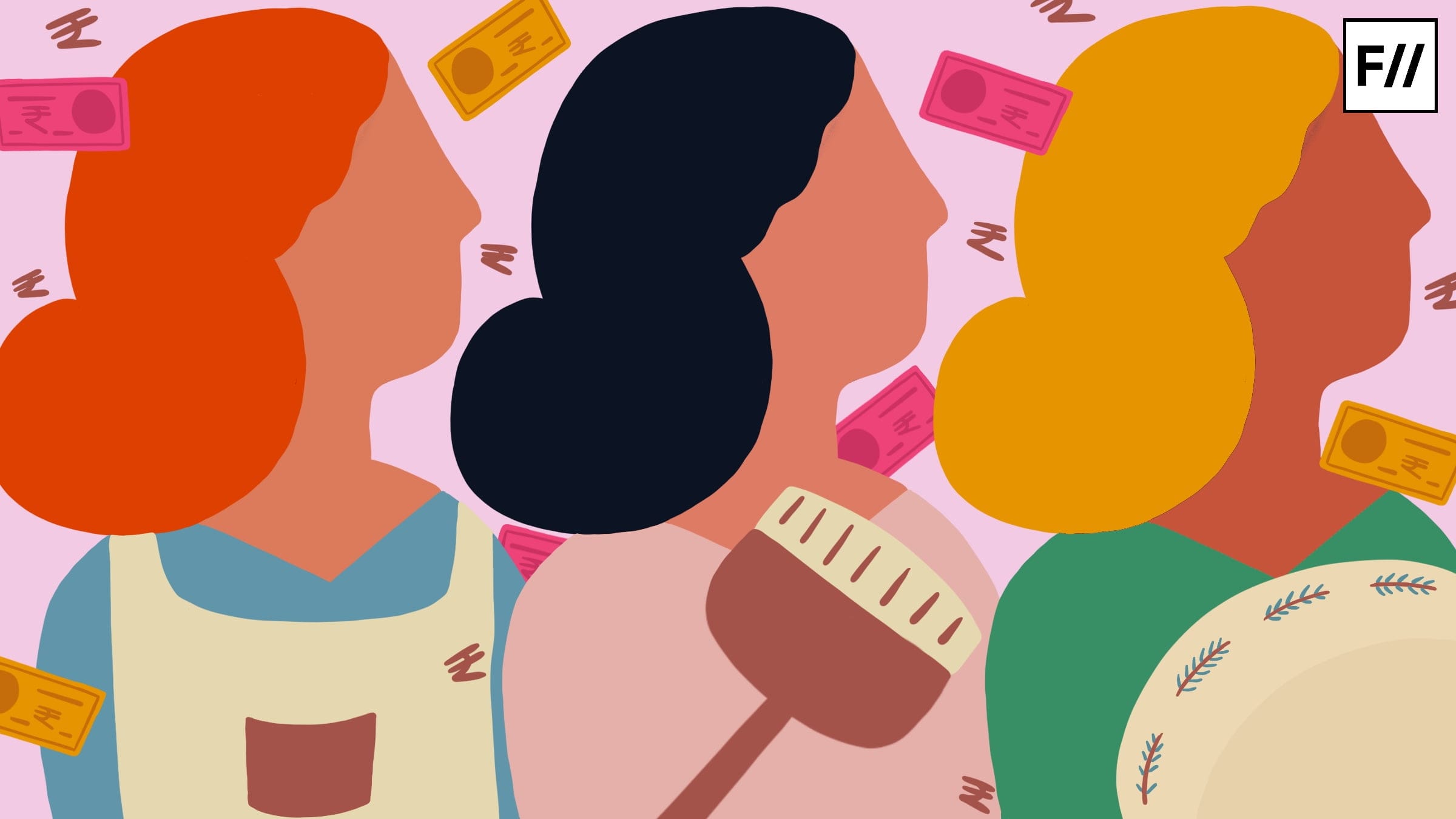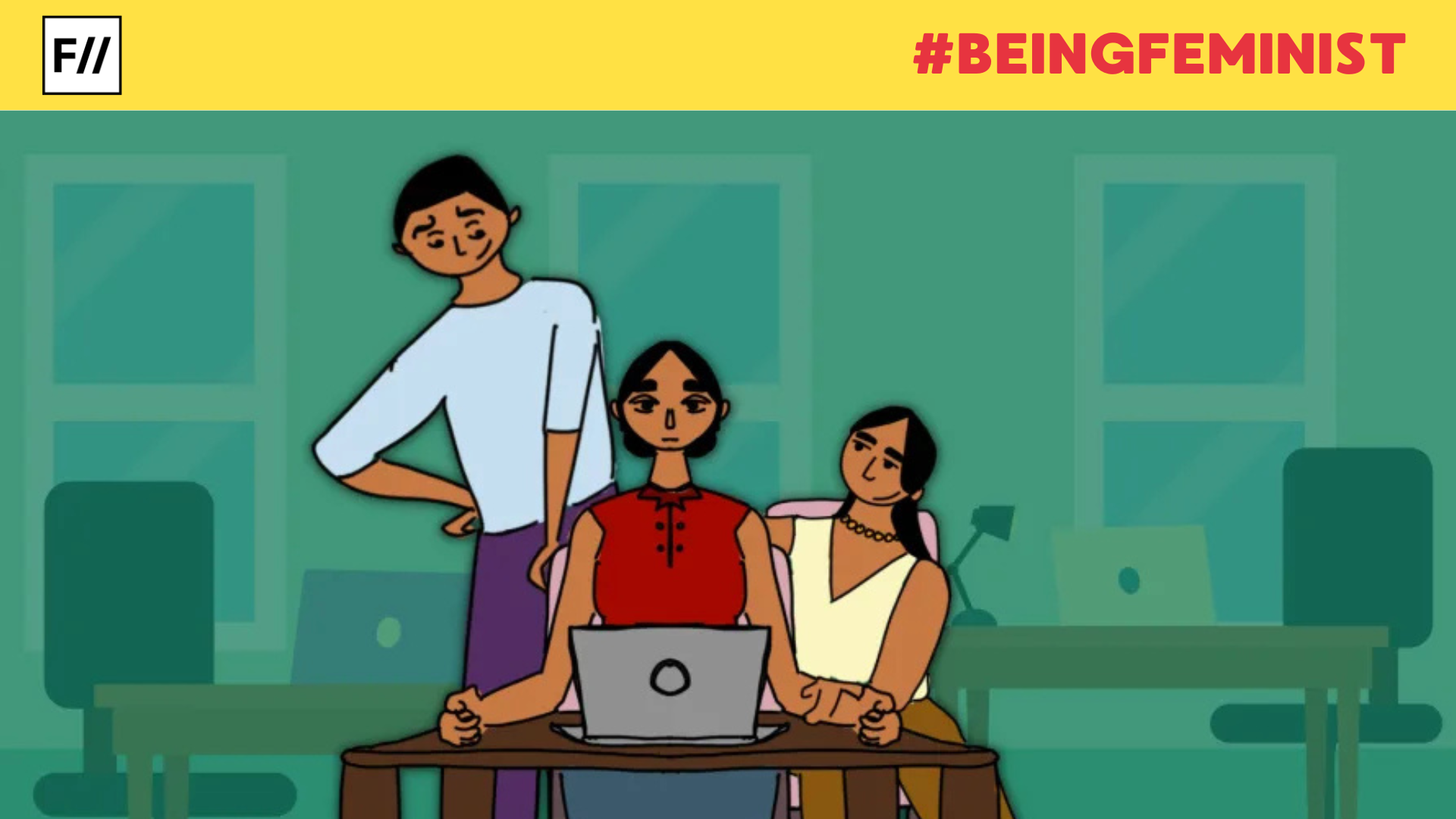Rest and leisure are seen as a basic human right, worldwide without exception. Still, a recent remark by the L&T Chairman, SN Subrahmanyan caused much debate and raised serious concerns about work-life balance and social conventions. With a cynical comment, ‘How long can you stare at your wife?‘, he advised staff members to work on Sundays as well.
With a cynical comment, ‘How long can you stare at your wife?‘, he advised staff members to work on Sundays as well.
Although most people consider Sundays a global day of rest, it is far from real for working women. The comment unintentionally revealed a critical problem, which many slammed for its contempt of personal time and insensitivity. Men could utilise Sundays for leisure, relaxation, or the pursuit of hobbies; women often spend the day catching up on housework, child care, and weekly planning.
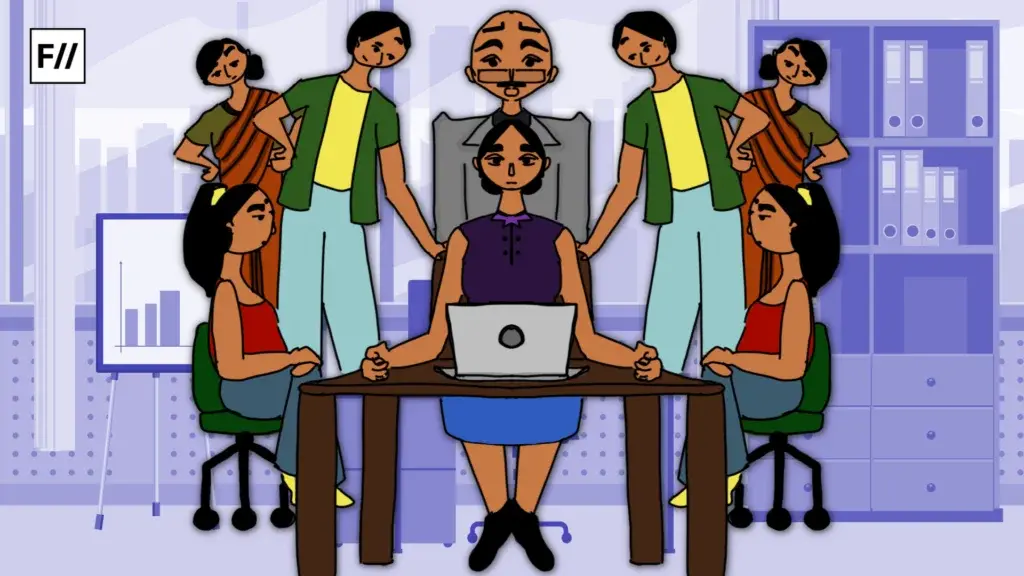
This difference reflects a wider socioeconomic problem resulting from patriarchal norms devaluating women’s efforts in the home and the job, not just a dismal recap of the cultural attitudes that sustain gendered imbalance in employment, both paid and unpaid, but also a sobering reminder of the Chairman’s comments in this regard.
The double burden and unpaid work: a persistent inequality
Worldwide women undertake three times more care and domestic work than men, with women in low and middle-income countries devoting more time to unpaid work than in high-income countries, although income-related differences within countries also exist. The ‘double burden’ is a challenge that society throws on women where they are expected to balance unpaid domestic chores and paid employment to keep the household functioning.
Studies reveal that women do a disproportionate amount of unpaid household labour and caregiving tasks daily in comparison to males. Alonso et al. (2019) and Farré et al. (2021) in their research show that women spend two additional hours daily on unpaid chores on average. This gap widens significantly in households with children, where the division of labour becomes even more uneven. Further, as mentioned on the ILO website, ‘Globally, women perform 76.2 per cent of total hours of unpaid care work, more than three times as much as men. In Asia and the Pacific, this rises to 80 per cent.‘
Further, as mentioned on the ILO website, ‘Globally, women perform 76.2 per cent of total hours of unpaid care work, more than three times as much as men. In Asia and the Pacific, this rises to 80 per cent.‘
Among the most underappreciated kinds of work done worldwide is unpaid household labour by half of the world’s population.
Gender norms and Sunday as a working day for women
The family duties are divided between men and women based on established social standards; which unfairly burdens women. These responsibilities are deeply rooted in our culture, where women’s roles may include care and housework. Typically thought of as a time to relax, Sundays become a ‘catch-up’ day for women running across chores like weekly planning, meal prep, and thorough cleaning.
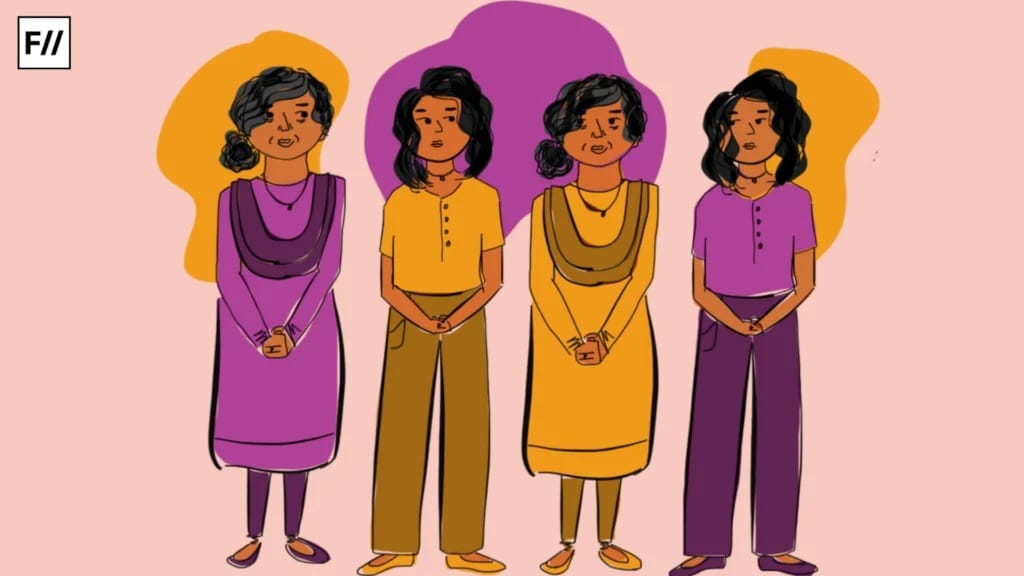
Many men, in the meantime, utilise Sundays for relaxation or enjoyment of leisure activities. ‘Sundays are the one day I can catch up on everything laundry, grocery shopping, cooking,’ Ayesha Khan, a working mother explains. ‘Once I finish, there will be no time for me.‘
This comment sums up exactly the reality many women live in: they constantly balance their personal and professional obligations with little help or recognition. Another working mother, Priya Sharma, thinks, ‘I feel like I’m always running but never getting there. No matter how hard I try, the house always has more to be done. I barely have time for myself.‘
Furthermore, the strongly ingrained gender norms shaped by religious and cultural aspects still make sure women perform the majority of unpaid housework. These conventional expectations endure even as more women join the job, therefore influencing their mental health as much as their financial freedom.
These conventional expectations endure even as more women join the job, therefore influencing their mental health as much as their financial freedom.
In many cases, there is a ‘triple burden’ working women endure i.e. a balance between domestic chores, jobs outside the house, and societal expectations. This disparity reduces their chances for development and causes unease. Moreover supporting these gender roles are economic ones.
An example from rural South Asia highlights where women are typically left with most of the agricultural chores while men travel to cities for employment. This is described as the ‘feminisation of agrarian distress,’ which underscores how women take on low-paying, undervalued work with little support. Many women who deal with an unrelenting cycle of demands without any relief have this sense of continuous strain and tiredness.
The impact on women’s health and well-being
The never-ending cycle of paid and unpaid employment causes great mental and physical health issues for women. Common among women who manage multiple obligations without proper rest are burnout, tiredness, and constant stress. For instance, a study done in China found that women who work paid jobs for long hours and provide informal care show notable health decline mostly owing to increased psychological stress and less physical activity (Chen et al., 2020).
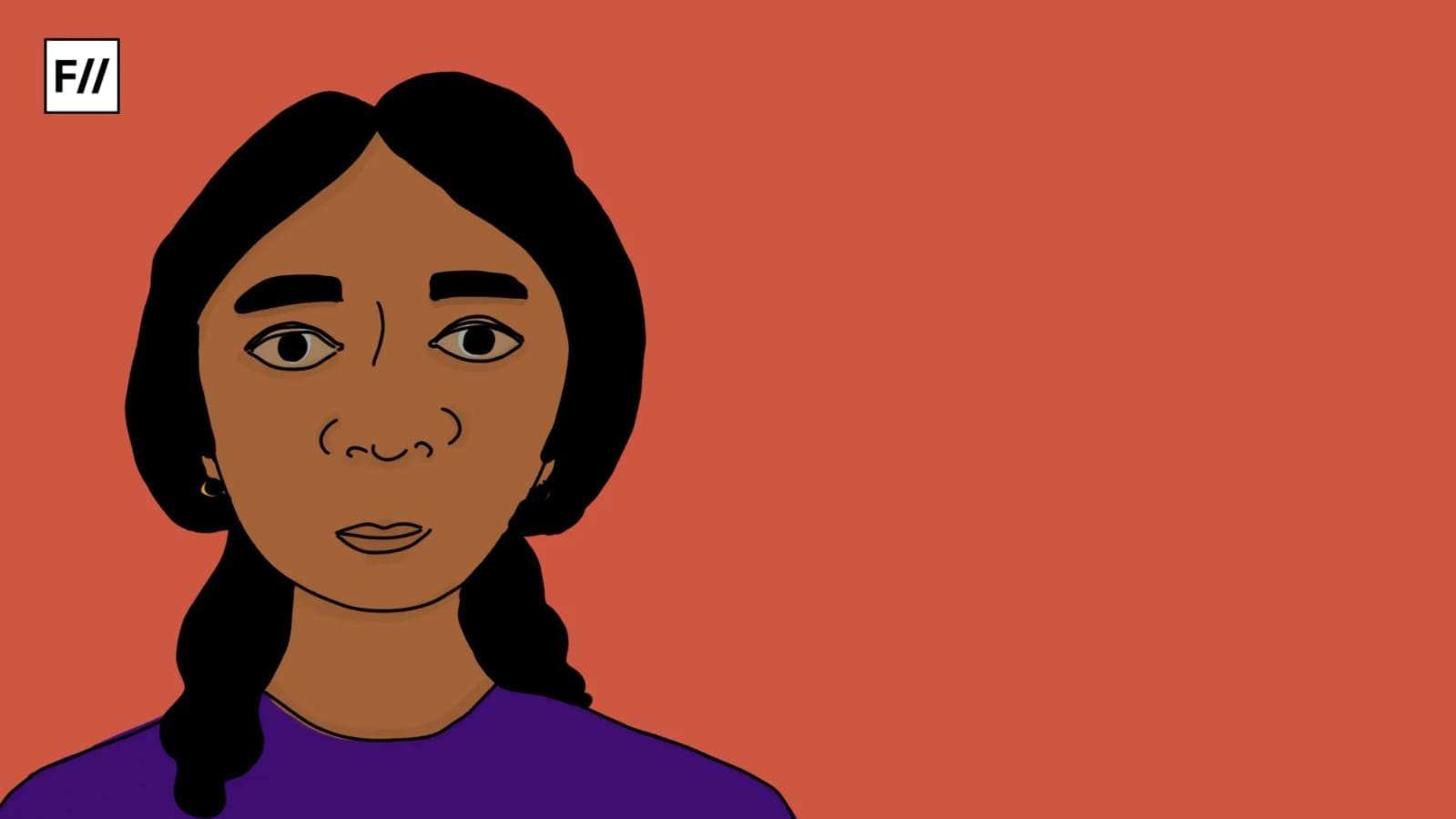
This inclination might have more severe health consequences in the future including anxiety, depression, and other stress-related disorders. Hodge (2024) underlines that the gendered element of unpaid employment aggravates financial stress, particularly during social work placements, which in turn worsens women’s mental health issues, and Shahidi et al. (2024) emphasise that any degree of unpaid overtime increases the extra responsibilities women bear, so compromising their mental health.
Unlike paid labour, which is acknowledged and rewarded in the official economy, unpaid work mostly done by women is sometimes considered a natural extension of their responsibilities as homemakers and carers. Women who consistently prioritise others before themselves may find themselves trapped in a cycle of constant duty that diminishes their overall quality of life. Women are often motivated to emphasise housekeeping and care above their own goals; hence, a lack of suitable support networks, as well as society’s denial of this imbalance, can have long-term effects such as low self-esteem and fewer career chances.
This structural imbalance not only affects individual women but also reinforces more general society gender stereotypes, therefore restricting advancement towards actual gender equality.
This structural imbalance not only affects individual women but also reinforces more general society gender stereotypes, therefore restricting advancement towards actual gender equality.
Redefining rest and equality
The remark made by the L&T Chairman devalues leisure and personal time, therefore reflecting negative work cultures that give production priority above welfare. Such ideas diminish the importance of unpaid household activities and foster bad work-life interactions.
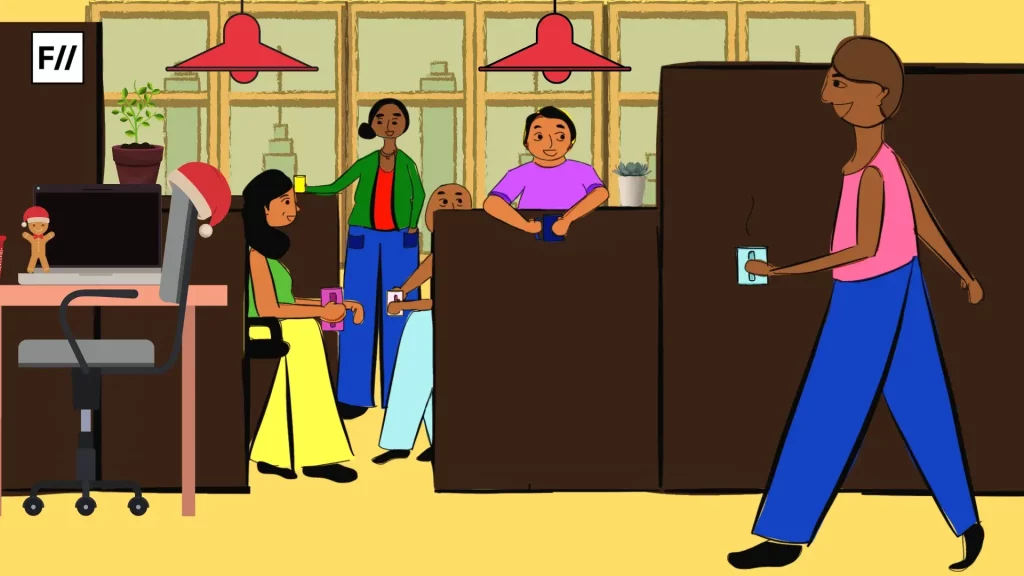
Sundays should be days of leisure for everyone, including women. Reaching gender equality depends on appreciating and distributing unpaid labour. Families, companies, and governments all have to cooperate to challenge conventional gender stereotypes and advance equitable working conditions. Along with appreciating unpaid labour, the road towards gender equality calls for tackling institutional and cultural elements supporting these differences.
References:
UN Women. Progress of the world’s women 2019-2020: families in a changing world. Chapter 5. Caring families, caring societies. 2020:140-73. https://progress.unwomen.org
Alonso, C., Brussevich, M., Dabla‐Norris, E., Kinoshita, Y., & Kochhar, K. (2019). Reducing and redistributing unpaid work. IMF Working Papers, 19(225). https://doi.org/10.5089/9781513514536.001
Shahidi, F. V., Tracey, M., Gignac, M. A. M., Oudyk, J., & Smith, P. M. (2024). Unpaid overtime and mental health in the canadian working population. American Journal of Industrial Medicine, 67(8), 741-752. https://doi.org/10.1002/ajim.23622
Hodge, L., McIntyre, H., Morley, C., Briese, J., Clarke, J., & Kostecki, T. (2024). “my anxiety was through the roof”: the gendered nature of financial stress and its impact on mental health and well-being for women when undertaking social work placements. Affilia, 39(3), 499-516. https://doi.org/10.1177/08861099231225228
Kushitor, S. B., Owusu, L., & Kushitor, M. K. (2020). The prevalence and correlates of the double burden of malnutrition among women in ghana. Plos One, 15(12), e0244362. https://doi.org/10.1371/journal.pone.0244362
Tanwi, T. S., Chakrabarty, S., & Hasanuzzaman, S. (2019). Double burden of malnutrition among ever-married women in bangladesh: a pooled analysis. BMC Women’s Health, 19(1). https://doi.org/10.1186/s12905-019-0725-2
https://www.bmj.com/content/374/bmj.n1972
https://www.ilo.org/resource/news/ilo-women-do-4-times-more-unpaid-care-work-men-asia-and-pacific
Chen, L., Fan, H., & Chu, L. (2020). The double-burden effect: does the combination of informal care and work cause adverse health outcomes among females in china?. Journal of Aging and Health, 32(9), 1222-1232. https://doi.org/10.1177/0898264320910916
About the author(s)
She is a Research Scholar, currently dedicated to pursuing her doctoral studies in the field of Political Science and International Relations. With more than ten years of hands-on experience across various media-related domains, she has established herself as a seasoned Media Professional.
